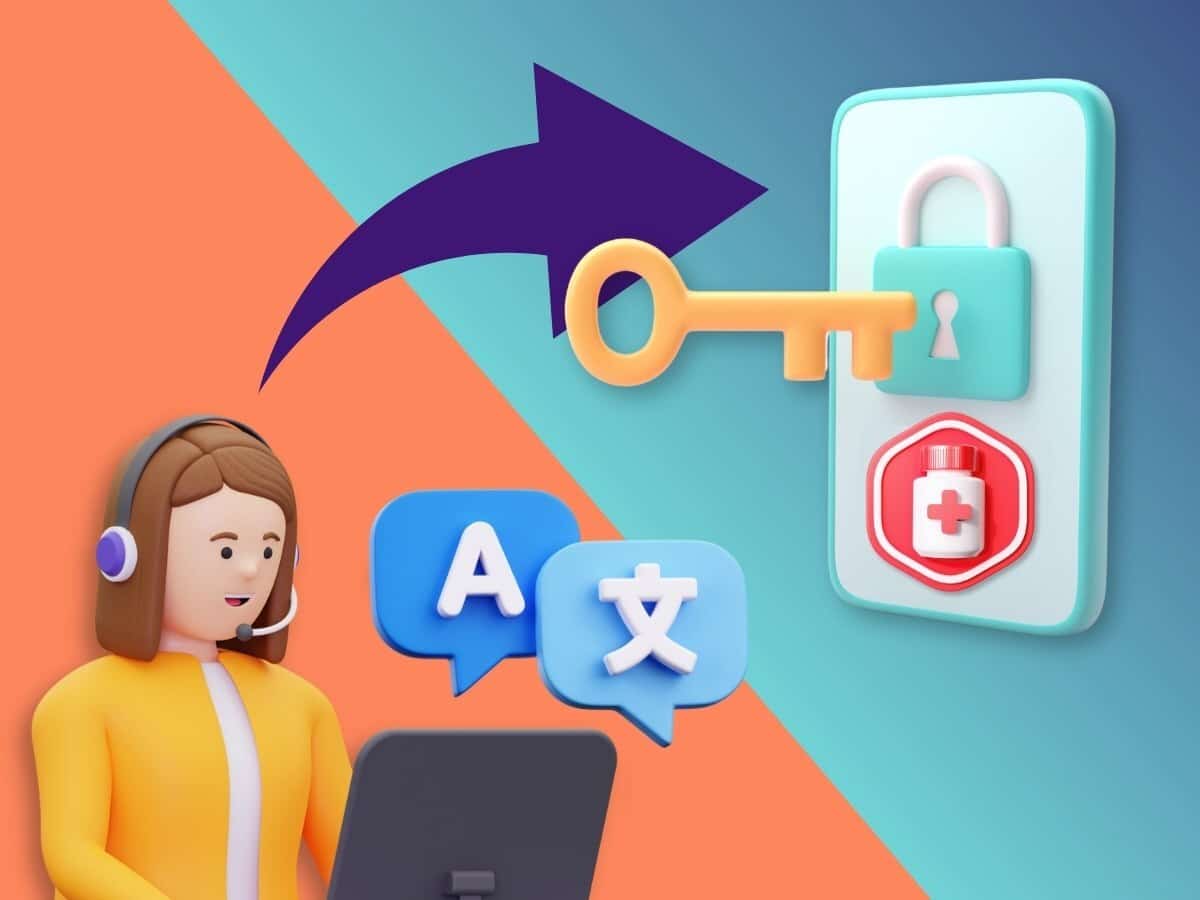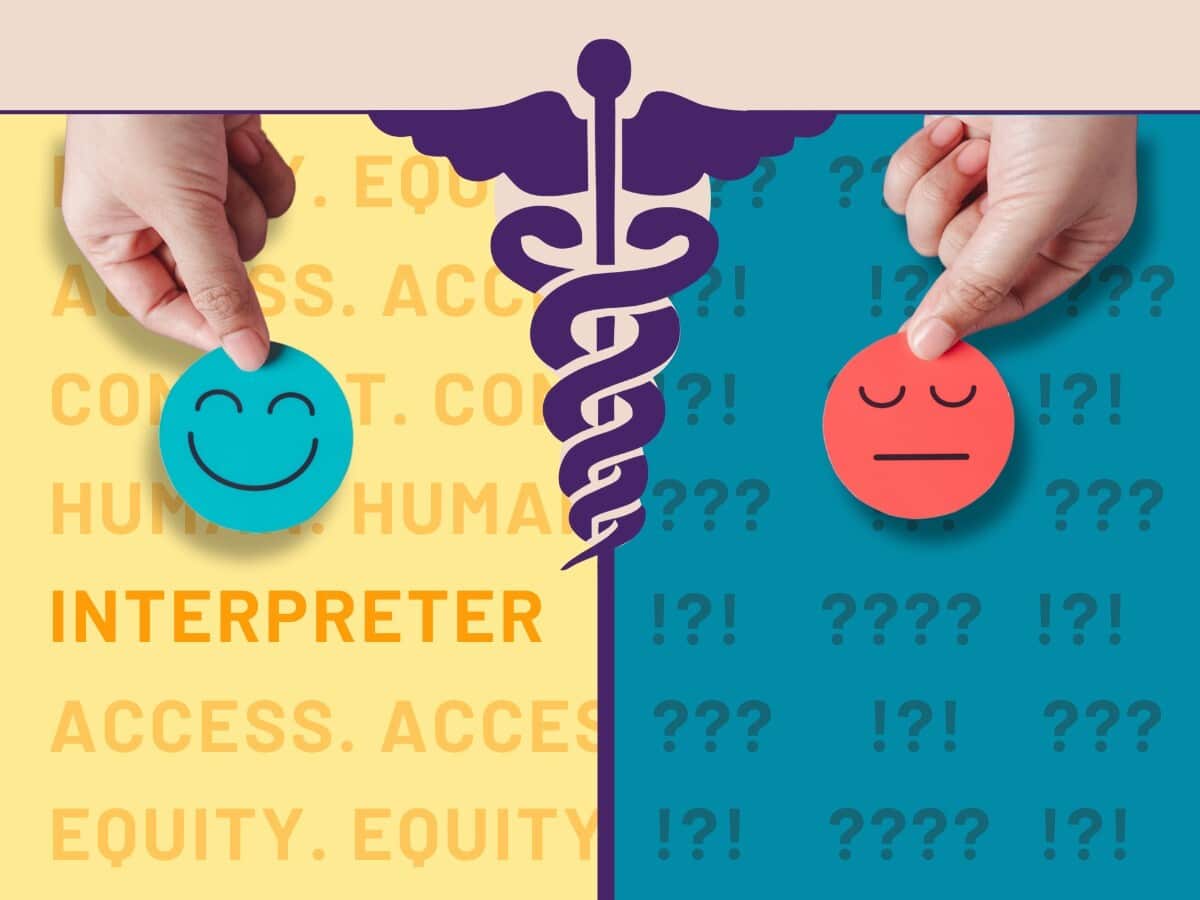Introduction
Effective communication is of the utmost importance in a healthcare setting. However, when a patient comes in that does not speak the same language as their provider, language barriers can hinder that effective communication, thereby reducing patient access to the care they need. Luckily, much of this can be combated with qualified medical interpreters.
Qualified medical interpreters improve patient access in a number of ways by facilitating effective communication between patients and providers. Using medical interpreters not only helps improve patient access, but also improves patient satisfaction and patient outcomes. Let’s take a look at how in this blog.
The Significance of Language in Healthcare
Language directly impacts quality of care, patient safety, and healthcare outcomes. Accurate communication is essential in ensuring that patients can articulate their symptoms, concerns, and medical history, enabling healthcare providers to make informed diagnoses and treatment decisions. Additionally, language proficiency enables patients to understand their diagnoses, treatment plans, and medication instructions, empowering them to actively participate in their own healthcare journey.
Unfortunately, language barriers can lead to misunderstandings, medical errors, and disparities in access to care, particularly for linguistic minorities and migrant populations. Recognizing the significance of language in healthcare underscores the importance of linguistic diversity and the need for inclusive practices that prioritize language access for all patients, regardless of their linguistic background.
The Role of Qualified Interpreters
Qualified interpreters play a crucial role in healthcare settings, ensuring that both patients and healthcare providers can effectively communicate with each other. Their expertise in interpretation bridges the gap between individuals who speak different languages, facilitating clear and accurate communication. Their presence not only enhances patient-provider communication but also fosters trust, empathy, and cultural sensitivity within the healthcare setting.
Overall, qualified medical interpreters play a vital role in promoting equitable access to healthcare and improving patient outcomes for individuals with limited English proficiency, or those who speak a different language than their healthcare provider.
How Qualified Interpreters Improve Patient Access
Patient access refers to how easily patients are able to access healthcare providers and services. (Authenticx) When a patient speaks a different language than their provider, and there is no interpreter to assist, patient access is compromised. However, when medical interpreters are involved, you can improve patient access in a variety of ways.
Improved Accuracy
A medical interpreter’s primary responsibility is to interpret, thereby enhancing the precision and efficacy of communication between patients and healthcare providers. Particularly adept at navigating complex medical terminology, interpreters ensure mutual understanding between patients and providers. This vital skill not only fosters clarity in exchanges between the two but also cultivates trust and facilitates informed decision-making.
Moreover, medical interpreters possess cultural competency, allowing them to navigate diverse cultural backgrounds and customs, ensuring that communication is not only accurate but also sensitive to the unique needs and perspectives of everyone involved.
Enhanced Patient Satisfaction
Patient satisfaction is crucial to improve patient access because satisfied patients are more likely to not only return for future care, but to recommend the provider to others, which can lead to better overall health outcomes for the community. Patient satisfaction is linked to improved healthcare outcomes due to the fact that high levels of patient satisfaction can lead to better adherence to treatment plans through the patient journey.
Increased patient satisfaction also creates more trust in the healthcare system, which is vital in order to improve patient access. This encourages patients to seek timely care, follow through with treatment plans, and engage proactively in managing their health, fostering a stronger patient-provider relationship and reducing barriers to accessing necessary healthcare services.
Reduction in Adverse Events
When you improve patient access to healthcare, it can lead to earlier detection and intervention of medical problems, reducing the likelihood of adverse events. Timely access to preventive care has never been more important, helping to identify and mitigate potential risks before they escalate. This emphasis on early intervention can only function and succeed when there is patient access to these health systems.
Enhanced communication and coordination among healthcare providers can also reduce adverse events related to miscommunication or lack of information sharing—which can be facilitated by qualified medical interpreters. Collaborating with patients and their families through medical interpreters in care planning and decision-making can help identify individuals’ needs and preferences, reducing the likelihood of adverse events.
Conclusion: Promoting Awareness and Advocacy
Promoting awareness and advocacy for language access in healthcare settings is paramount for ensuring equitable and effective care. It's vital to educate healthcare providers, patients, and policymakers about the indispensable role of qualified interpreters in facilitating clear communication and understanding between patients and healthcare providers. Efforts to promote language access include advocating for the integration of interpreter services and language service providers into healthcare systems, training healthcare staff on language access protocols, and supporting initiatives that promote multilingual healthcare materials. Patient access is not a privilege, but a right.









